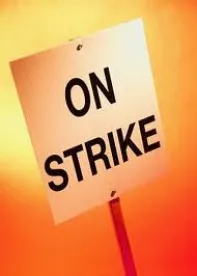On June 1, 2023, the Supreme Court of the United States issued an 8-1 opinion in Glacier Northwest, Inc. v. Teamsters, finding that conduct intentionally undertaken to cause damage to the employer’s property, or the failure to reasonably protect against such foreseeable damage, is not activity that is “arguably protected” under the National Labor Relations Act (“NLRA”) and that a union can be held liable for the damage caused.
The International Brotherhood of Teamsters, Local 174, represented drivers for Glacier Northwest in its concrete mixing and delivery business. After the collective bargaining agreement expired without a reaching a new agreement, the union called a strike, but waited to commence the strike until after the company filled its trucks with wet concrete. The union then instructed the truck drivers to ignore the company’s orders to deliver the wet concrete, putting the trucks and the concrete in imminent, foreseeable danger of being damaged and lost if the concrete hardened. Several of the union drivers abandoned their trucks without giving Glacier any notice, causing the company to deploy emergency measures to salvage the trucks by dumping—and wasting—the large batches of concrete the company mixed.
Reaffirming the long-held principle that the NLRA does not protect strikers who fail to take “reasonable precautions” to avoid inflicting foreseeable harm to their employer’s property during a strike, the Supreme Court found the union’s and drivers’ conduct unreasonable because it was strategically timed for when the trucks would be full of wet cement and they “fail[ed] to take even minimal precautions” to protect Glacier’s product and equipment. This intent to destroy the company’s property, or at least the failure to take reasonable precautions to protect that property, removed the strikers’ conduct from the realm of what is “arguably protected” under the NLRA, and permitted the company to sue the union for the loss of its property.
This decision has significant implications for management’s ability to insist on an orderly transfer of work in the first stages of a strike and to hold unions accountable for irresponsible conduct even if it does not amount to intentional sabotage. In preparing for a potential strike, management should develop detailed requirements to protect against loss of equipment and product, property damage, and interference with customers, including insisting on adequate notice, cooperation in the transition of work to supervisors and non-striking employees, and proper care and attention to avoid damage and loss. In advance of strike action, management should put unions on notice (in writing) of what is reasonably required so that the union can be held accountable for the foreseeable harm resulting from non-compliance.
The case has now been remanded to Washington state court for the company to continue its lawsuit against the union for the lost value of its product. Blank Rome will continue to monitor its progress and update this blog with any developments that may impact employers at risk of potential strike activity.




 />i
/>i

